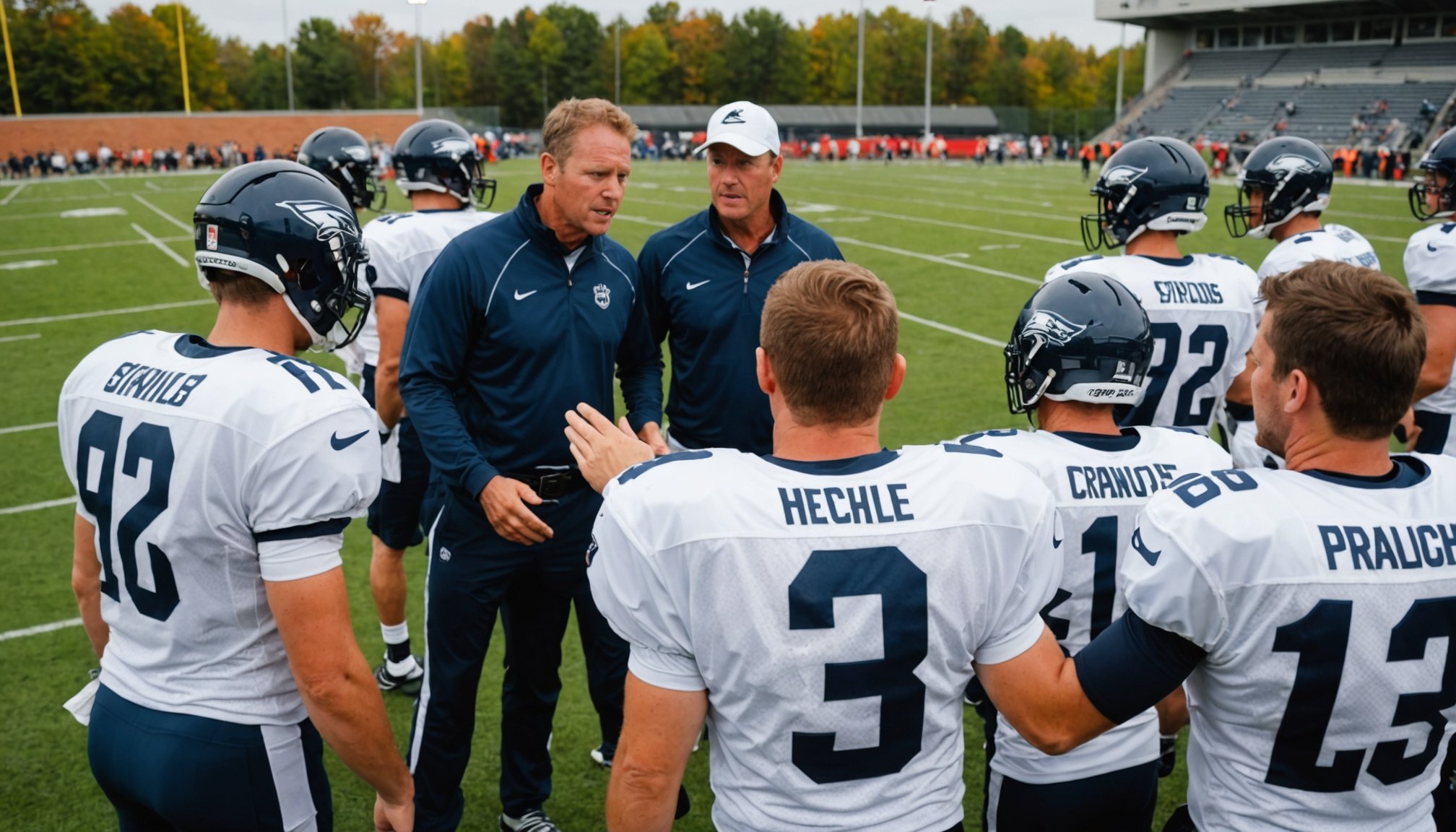In the realm of sports, particularly football, the mental state of players plays a pivotal role in determining overall performance. During tough seasons, when teams face adversity, the morale of the squad can significantly dip, impacting not only their gameplay but also their cohesion as a unit. As football coaches, your role transcends mere tactical instructions; it also encompasses fostering an environment where players feel valued, motivated, and resilient. This article delves into effective psychological strategies that can bolster team morale, transforming challenges into opportunities for growth and camaraderie.
Building Trust and Open Communication
One of the fundamental pillars of enhancing team morale is establishing a culture of trust and open communication. When players feel secure in expressing their thoughts and feelings, they are more likely to engage positively with each other and the coaching staff. Encourage a team environment where feedback is not only welcomed but also acted upon. Regular team meetings can serve as a platform for this exchange, allowing players to voice concerns and celebrate achievements collectively.
Also to see : What is the process behind scouting and recruiting young talent in UK football?
Moreover, incorporating one-on-one check-ins with players can further strengthen this bond. These personal interactions allow you as a coach to understand individual challenges and aspirations. This practice not only demonstrates your commitment to their development but also fosters a sense of belonging within the team. When players feel heard and valued, they are more likely to invest emotionally in their performance and support one another during tough times. Implementing these communication strategies lays a strong foundation for a resilient team dynamic, capable of weathering the storms of challenging seasons.
Fostering a Growth Mindset
A growth mindset is crucial for players to embrace challenges and learn from setbacks rather than succumbing to frustration. As coaches, you can cultivate this mindset by emphasizing effort and improvement over mere results. Encourage players to view failures as learning opportunities rather than disappointments. This can be achieved through constructive feedback that focuses on what can be improved, rather than solely critiquing poor performances.
This might interest you : In what ways do training regimes differ between youth and professional football players in the UK?
Utilizing positive reinforcement is another effective method. Celebrate small victories and improvements, no matter how minor they may seem. This not only boosts individual confidence but also reinforces a collective belief in the team’s potential to overcome obstacles. Encouraging players to set personal and group goals can further enhance this mindset, providing them with tangible targets to strive toward. By fostering a culture where effort is recognized and learning is prioritized, teams can maintain high morale, even when the season’s results are not favorable.
Encouraging Team Bonding Activities
Incorporating team bonding activities is a powerful strategy to enhance morale and strengthen relationships among players. These activities create a relaxed atmosphere that fosters camaraderie, allowing players to connect beyond the confines of training and matches. Consider organizing regular team outings, such as dinner gatherings, escape room challenges, or outdoor adventures, where players can engage in fun and lighthearted interactions.
Additionally, implementing team-building exercises during training sessions can also be beneficial. Activities that require collaboration, problem-solving, and communication can help players develop trust and understanding of each other’s strengths and weaknesses. When players feel connected and united, they are more likely to support one another on the field, which can lead to improved performance and resilience during challenging matches.
Furthermore, don’t overlook the importance of celebrating milestones together. Acknowledge birthdays, achievements, and personal successes within the team. Recognizing these moments fosters a sense of community and belonging, reinforcing the idea that each player contributes to the team’s collective spirit. By prioritizing team bonding, you create an environment where players feel invested in one another’s success, thus boosting overall team morale.
Implementing Positive Visualization Techniques
Positive visualization techniques can significantly enhance a player’s mental resilience and boost morale. As coaches, you can introduce these practices by guiding players through mental imagery exercises. Encourage them to visualize successful performances, focusing on their individual contributions and the team’s overall synergy. This mental rehearsal not only builds confidence but also prepares players to tackle challenges head-on.
Incorporating visualization into pre-game routines can also be effective. Have players spend a few minutes before matches visualizing themselves executing plays successfully, overcoming obstacles, and celebrating victories with their teammates. This mental preparation can create a positive mindset that permeates the entire team, fostering a resilient attitude even in the face of adversity.
Moreover, sharing success stories of previous teams or athletes who have triumphed after facing difficulties can serve as inspiration. These narratives reinforce the belief that success is achievable, motivating players to stay committed to their goals despite current challenges. By implementing positive visualization techniques, you empower your players to take ownership of their mental state, enhancing overall team morale.
Navigating tough seasons in football is undoubtedly challenging, but the psychological strategies discussed can serve as essential tools for coaches aiming to enhance team morale. By building trust and open communication, fostering a growth mindset, encouraging team bonding, and implementing positive visualization techniques, you equip your players with the necessary resources to tackle adversity effectively.
Remember, the mental aspect of the game is just as crucial as the physical. By nurturing a supportive and resilient team culture, you not only improve performance but also create a positive environment where players feel valued and motivated. As you implement these strategies, you may find that the spirit of your team transforms, leading to a more cohesive unit ready to face any challenge with determination.











